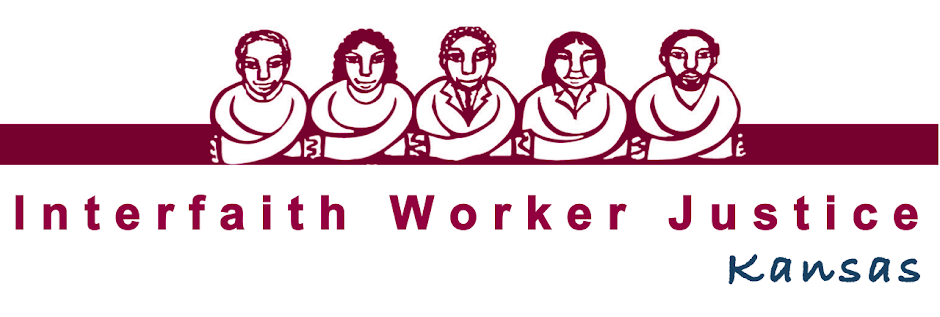We thank the Working Kansas Alliance for the following informative article.
On April 28^th workers all around our nation will observe Workers Memorial Day. Workers Memorial Day is a day to commemorate those who have perished or suffered injuries or illness on the job. Last year, 54 Kansas workers lost their lives while on the job and an additional 31,700 sustained injuries or illness at or because of their workplace, according to a report by the AFL-CIO. Because of the broken Workers Comp system in Kansas many of these workers and their families did not receive the just compensation they deserve. The Workers Comp system in Kansas is broken, and workers hurt on the job have the deck stacked against them.
The workers’ compensation program was established in the early 1900s to protect workers who are hurt on the job. In return for a measure of a security, workers gave up the right to sue their employers, protecting employers from lawsuit judgments that could bankrupt them. By 1920, nearly every state had enacted workers’ comp laws.
A recent trend has seen states attacking workers’ rights for compensation, and Kansas has joined them by relaxing the requirements on employers and making it difficult for workers to make claims when hurt on the job.
A key to proper compensation for workers is the diagnosis and recommended treatment by doctors. Insurance companies reserve the right to select doctors to evaluate a worker’s condition. Since insurance companies pay the doctors and select the doctors, the companies have a record of selecting only those doctors who will make decisions in favor of the insurance companies.
If doctors make professional and ethical decisions, and if their diagnosis favors the hurt worker, some insurance companies harass doctors if they provide expensive and prolonged treatments or if they prescribe expensive medications. Consequently, doctors with thriving practices often are not willing to accept worker compensation claims.
Also, insurance companies sometimes send a person making worker comp claims long distances to the doctors chosen by the insurance companies. Again, the workers’ rights and the “right diagnosis” are of lower priority than the insurance company’s intent to reduce payout for claims.
The injured worker must prove that the “prevailing factor” for any resulting injury was caused by the job. For example, if a person fell from a ladder, a doctor might claim that the resulting injury would not have happened if the worker did not have arthritis in the knee, claiming that arthritis was the prevailing factor, not the accident itself. Then the worker must appeal that decision before a workers comp judge.
In Kansas the appeals system is also stacked against the injured worker. In 2013 the Kansas Legislature created a committee of seven members to review appointments of judges to review disputed workers’ comp cases. Previously these administrative law judge nominees were chosen by a two-member panel — one representing business and the other representing labor.
Under the new system for selecting judges, the seven permanent members are made up primarily of groups that oppose workers’ rights: Kansas Chamber of Commerce, National Federation of Independent Businesses, Kansas State Council for Human Resource Management, Kansas Self-Insurers Association, a representative of the Kansas Secretary of Labor, a representative of labor chosen by the Kansas Secretary of Labor, and a person chosen by the Kansas AFL-CIO labor union.
In the best-case scenario, only three members are likely to support workers— the persons selected by the Kansas AFL-CIO and the Kansas Secretary of Labor. However, because of the current administration's support of business interests, the governor and current state leaders expect appointees of the Kansas Secretary of Labor to reflect the administration's views opposing workers' rights; consequently, six members of the committee do not represent the interests of working Kansans.
This nominating committee picks nominees for ten judges and five appeals adjudicators when the positions come open and votes on retention every four years. In other words, they retain the ability to fire the judges of workers compensation.
As a result, workers hurt on the job have the system and the appeals process stacked against them.
###
______________________________
The Working Kansas Alliance is a coalition of union and non-union groups dedicated to protecting the rights of the hard working Kansas families that fuel our State’s economy. Our mission is to advocate for and promote policy solutions that strengthen working families and their Kansas communities.
Contacts: Terry Forsyth (terry.forsyth@knea.org (mailto:terry.forsyth@knea.org

